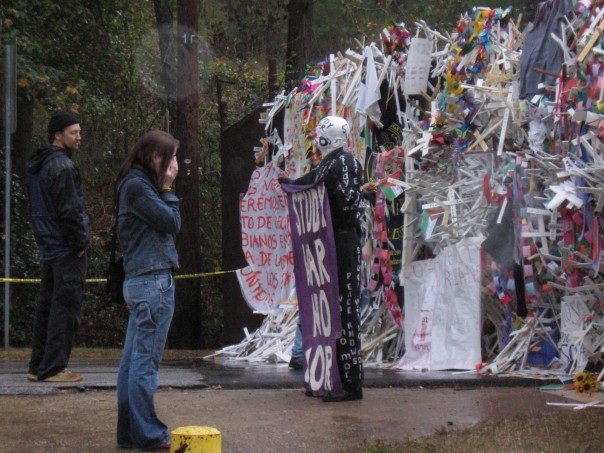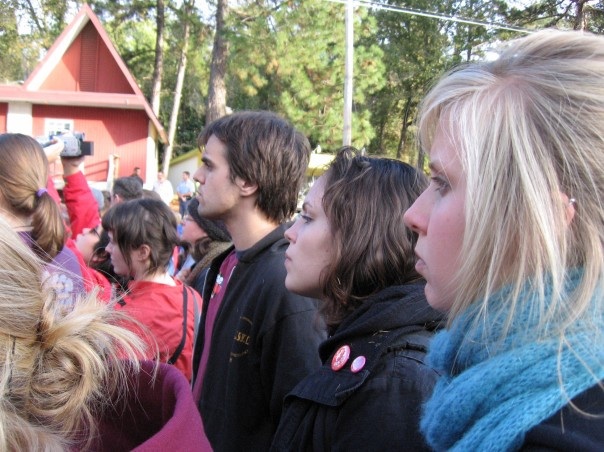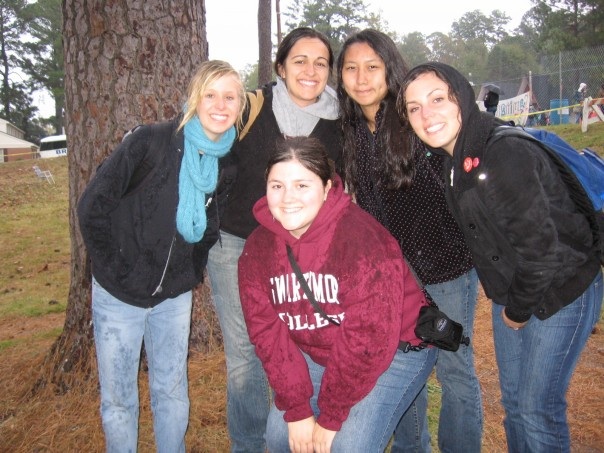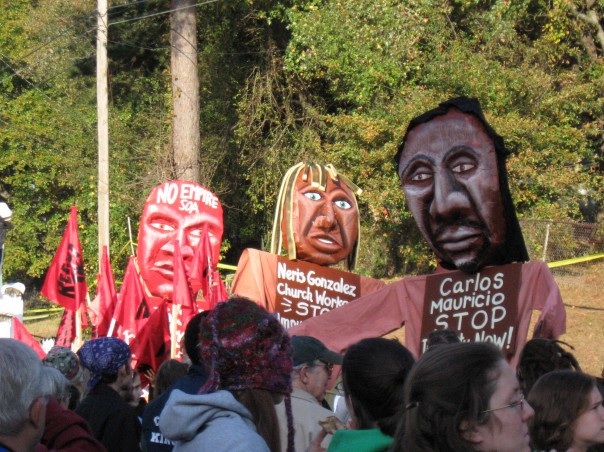Remembering our loved ones: the struggle against the
School of the Americas is a testament of our collective
memory�
Camila Leiva�

In November of 2005 I had the
opportunity to attend the vigil at the gates of the
School of Assassins in Fort Benning, Georgia.�
I was there with college friends to
protest that for almost 66 years thousands of Latin
American military personnel have been trained there, in
the �science� of torture and repression.�
That year we were more than six
thousand people, from many different parts of the
country and the world, and we gathered there with our
banners, music, photos, giant puppets, acts of civil
disobedience, and a lot of energy, to demand the closing
of the School of the Americas.
Like every year, there was a funeral
procession in which we named the thousands of people
that have been murdered by the military trained in the
School of the Americas.�
The procession was a very intense
moment, full of sadness but also a great deal of
collective strength.�
To hear thousands of people of
different races, diverse communities and different
countries gather together to yell out �PRESENTE!� after
each victim named, is an experience I will never
forget.�
I will also not forget the experience
because it gave me the opportunity to name and remember
my grandmother�s brother, Orlando Letelier, and feel
that my family was not alone in our remembrance of
him�we were part of a larger movement.�
 When
I heard by great uncle�s name, I felt a huge personal
connection to him and remembered the true reason I was
there. �
When
I heard by great uncle�s name, I felt a huge personal
connection to him and remembered the true reason I was
there. �
While it was my political commitment
that had taken me to Fort Benning, I realized, in the
process, that like many other Latin Americans, the
existence of the School of the Americas had also
affected my family and me on a personal level.�
The murder of my great uncle has
deeply affected generations of my family. The act of
terrorism that took Orlando�s life caused trauma and
pain, but it also generated a commitment to dedicating
our lives to the work to which he dedicated his life: to
create a more just and democratic Chile that is free of
U.S. government control.�
My grandmother, Fabiola Letelier, is
part of this fight. As a lawyer she continues to defend
human rights to this day. Now it is our turn, the
children and grandchildren of the rebellious spirit that
was generated by this dark history, to keep fighting for
the justice that our family members and our people were
working towards.�
For me, there is no clearer objective
than closing the School of the Americas and demanding
that our governments stop sending military to train
there. Six countries in Latin American have said �NO!�
to the School of the Americas and have publicly removed
their soldiers. We must grow our movement so that all
the countries in our continent stop sending soldiers to
the School of Assassins.�
�

The gates of Fort Benning, covered with crosses and the
names of the victims of the School of Assassins.
.
Camila and her university friends, listening to the
different speakers of the vigil.

Camila (on the right) with her university friends in
front of the gate, which is in the background.

Funeral procession from the 2005 vigil, always full of
art and giant puppets.



